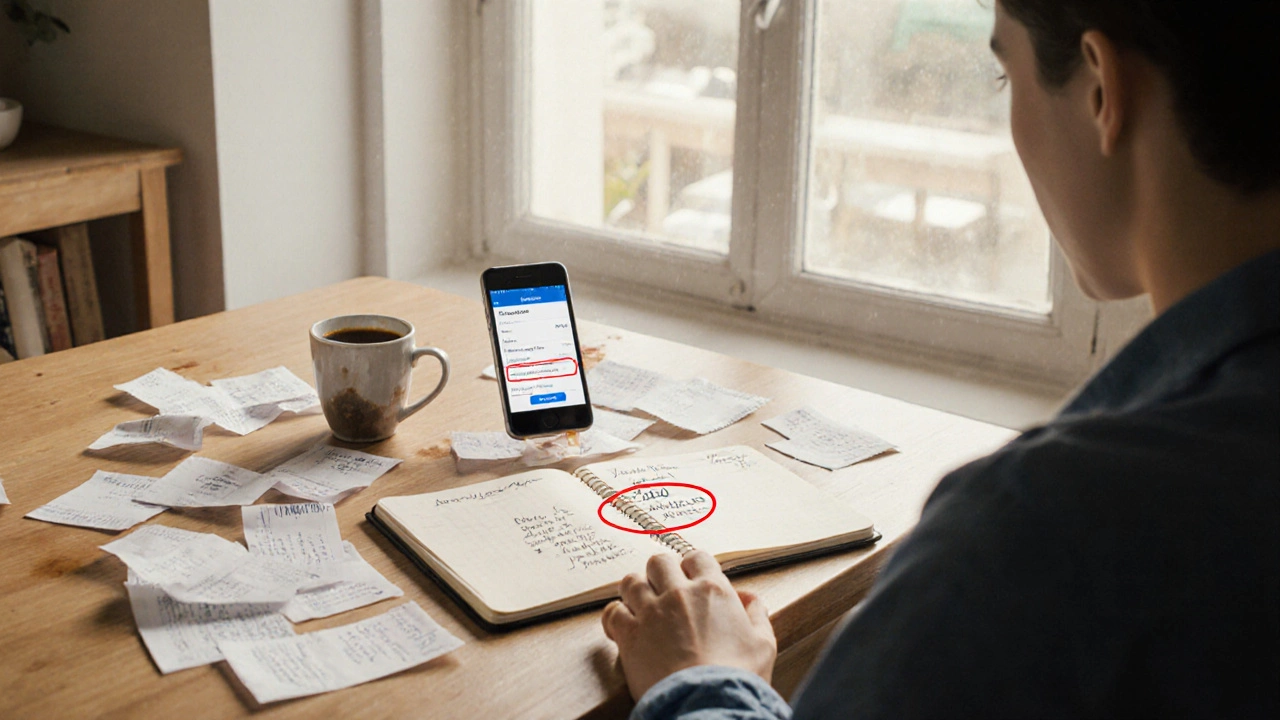Budget Reality Check
Your Estimated Budget
Enter what you think you spend each month
Your Actual Spending Reality
What you actually spend compared to your estimates
Key Insight: Your budget is based on guesses, not reality. The article explains how this is the #1 budgeting mistake.
Your Fun Fund
According to the article, budgeting works when you include space for joy. Here's how to create your fun fund:
- Set aside $50-$100 monthly for whatever makes you happy
- Track it separately from regular spending
- Use it guilt-free for movies, flowers, or anything that brings joy
Most people think budgeting is about cutting out coffee and skipping lunches. But the real problem isn’t what you spend-it’s what you ignore. You track every coffee, yet overlook that $200 monthly subscription you forgot about. Or you set a budget and then abandon it after two weeks because it felt impossible. Budgeting doesn’t fail because you’re bad with money. It fails because you’re following the wrong rules.
You don’t track actual spending-just guesses
One of the biggest mistakes? Making a budget based on what you think you spend. I’ve seen people swear they spend $300 a month on groceries, only to check their bank statements and find $520. That’s not a typo. That’s reality. You remember buying milk and eggs. You forget the impulse buy at the gas station, the takeout you ordered because you were tired, or the $15 snack you grabbed at the airport.
Real budgeting starts with honesty. For one month, write down every single transaction. No exceptions. Use your bank app. Take a screenshot of every receipt. Even the $2 coffee. At the end of the month, you’ll see patterns you never noticed. Maybe you’re spending more on apps and subscriptions than on rent. Maybe your ‘entertainment’ category is actually just Amazon impulse buys.
Don’t guess. Record. Then build your budget from real data, not wishful thinking.
You treat budgeting like a prison sentence
Too many people make budgets that feel like punishment. ‘No dining out. No new clothes. No fun.’ And then, after two weeks, they quit. Why? Because human beings don’t stick to rules that make them miserable.
A good budget isn’t about restriction-it’s about freedom. Freedom to spend on what matters without guilt. If you love weekend brunches, don’t cut them out. Cut the $100 you waste every month on unused streaming services. If you’re saving for a trip, don’t ban snacks-just reduce the number of takeout nights.
Give yourself permission to enjoy life. Budgeting works when it includes space for joy. That’s called a ‘fun fund.’ Set aside $50-$100 a month for whatever makes you happy. Watch a movie. Buy flowers. Get your nails done. When you include pleasure, you don’t feel deprived. And when you don’t feel deprived, you stick with it.

You forget that income changes
Most budgets are built like static spreadsheets. You set your income at $4,000 a month and plan around that. But what if your freelance gig dries up? What if you get a bonus? What if your hours get cut? Life doesn’t stay still. Neither should your budget.
People who succeed with budgets don’t rely on one number. They plan for ranges. If you earn $3,500-$4,500 a month, build your budget for the lower end. That way, when you make more, you’re not caught off guard. Extra money goes to savings, debt payoff, or your fun fund. It doesn’t just vanish.
Also, don’t ignore irregular income. If you get paid yearly bonuses, tax refunds, or seasonal work, treat those like windfalls-not part of your regular income. Save half. Spend half on something meaningful. Don’t turn a one-time payout into a new monthly rent payment. That’s how people get trapped.
You don’t review your budget
Setting a budget is like planting a seed. It doesn’t grow unless you water it. Yet most people set one up in January, forget about it, and then panic in June when they’re overdrawn.
Review your budget every two weeks. Just 15 minutes. Look at what you spent. Compare it to what you planned. Did you go over on groceries? Why? Was it because you ate out more? Or because prices went up? Adjust. If you consistently overspend on gas, maybe you need to carpool or plan errands better. If you’re under-spending on clothing, maybe you can reallocate that money to your emergency fund.
Monthly reviews aren’t enough. Life changes fast. A new job, a medical bill, a pet’s vet visit-these things happen. Your budget should be flexible enough to bend, not break.

You think budgeting is only for people with low income
There’s a myth that only people struggling to pay bills need budgets. That’s false. People with high incomes often have the worst financial habits. They make more, so they spend more. They assume ‘I earn enough, so I don’t need to track.’
But high earners are just as likely to get buried in debt, live paycheck to paycheck, or retire broke. Why? Because they never learned to manage money intentionally. They rely on automatic payments, credit cards, and ‘I’ll fix it later’ thinking.
Budgeting isn’t about how much you make. It’s about how clearly you see where your money goes. Whether you earn $30,000 or $150,000, if you don’t know where your money disappears, you’re just as vulnerable as someone with less.
People with higher incomes often need budgets even more. They have more complex expenses-private school, travel, investments, property taxes. Without a plan, those costs pile up quietly until they’re overwhelming.
Start small. Stay consistent.
You don’t need a fancy app or a 50-page spreadsheet. Start with pen and paper. List your income. List your fixed costs: rent, utilities, insurance. Then list your variable spending: food, transport, entertainment. Subtract. See what’s left.
Then pick one mistake to fix this week. Maybe it’s tracking every expense. Maybe it’s adding a fun fund. Maybe it’s checking your bank balance every Sunday. Do that one thing. Don’t try to fix everything at once.
Budgeting isn’t about perfection. It’s about awareness. The moment you stop ignoring your money, you take back control. And that’s the first step to real financial peace.
